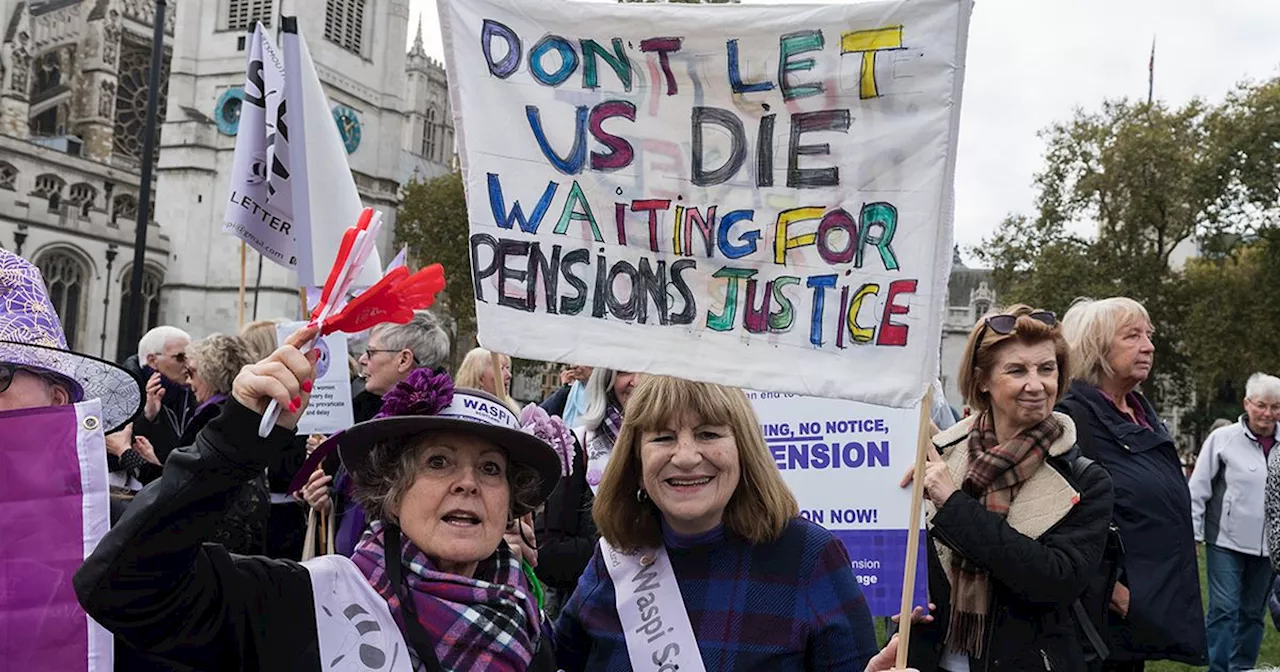WASPI (Women Against State Pension Inequality) campaigners are unwavering in their demand for compensation, despite the Labour government's refusal to provide payouts. The group, representing women born in the 1950s affected by the increase in state pension age, argues they were inadequately informed about the changes, causing financial hardship and disrupting retirement plans.
WASPI (Women Against State Pension Inequality ) campaigners have issued a stark warning to Prime Minister Keir Starmer, stating he has 'no right' to deny them compensation. The group, representing women born in the 1950s who were impacted by the increase in state pension age from 65 to 66, have been fighting for years for recompense.
They argue that they were inadequately informed about the changes, leaving many unprepared for a longer wait to claim their state pensions and disrupting their retirement plans. Despite the Parliamentary and Health Service Ombudsman previously acknowledging 'maladministration' in the DWP's communication of the change and recommending payouts between £1,000 and £2,950, Labour announced last year that there would be no compensation. Undeterred by this setback, the campaigners vow to continue their fight. WASPI campaign chair, Angela Madden, emphasized that the Government 'has a choice in this'. She insisted: 'It shouldn't cause this much pain. They think we're old women and we have no power. We have no power - all the power is with Keir Starmer. But just because he's got the power, it doesn't give him the right. And that's what we'll have to continue campaigning on. It's always been a Government choice.' She also pointed out that the estimated £10.5 billion required for compensation is 'a fraction' of other Government expenditures. Last week, Ms Madden and other advocates from the Women Against State Pension Inequality (WASPI) campaign were present at a meeting of the Work and Pensions Committee in Westminster. A representative of the Ombudsman was also there. Ms Madden found it encouraging that the Ombudsman agreed with their stance in some regards, stating: 'They understands the issues, they want to work with the DWP to resolve this and it isn't helpful for them to be ignored in some instances.' Last month, Liz Kendall, the Secretary of State for Work and Pensions, told the Commons that sending letters to the affected women earlier would have made little difference. Yet deputy ombudsman Karl Bannister took a different view, when speaking to the committee last week. He argued: 'The Government at the time considered the right thing to do was to send letters to people to increase awareness. 'It didn't do it, that's the maladministration. It's quite difficult to point back and say, we don't think letters would have worked.' He added that effective communication requires understanding that different demographics prefer different methods of receiving information. Ms Madden confirmed that their campaign will continue, buoyed by the support of numerous MPs who have spoken out in Parliament following the Government's decision, promising to maintain pressure for payouts. The campaign leader declared: 'We will continue campaigning. We are redoubling our efforts with MPs. The Scottish Parliament voted unanimously to put pressure on the Government of the UK to do what they should and repay WASPI women. She added: 'Maybe things like that will happen in the Welsh and Northern Ireland devolved assemblies as well. The view from the devolved administrations is very different from the view in England.' The SNP has been a vocal advocate for compensation, and during the previous Parliament when they controlled the Scottish Parliament, Holyrood passed a motion supporting 'compensation in full' for the affected women. With the shift after the General Election with Labour now holding most of the seats, Ms Madden said it will be curious to see if the new cohort of Scottish MPs will continue to represent the stance of Scottish voters or align with their party's position instead
WASPI State Pension Inequality Compensation Labour Government Parliamentary Ombudsman
United Kingdom Latest News, United Kingdom Headlines
Similar News:You can also read news stories similar to this one that we have collected from other news sources.
 WASPI Campaigners Demand Fair Compensation for State Pension ChangesA petition calling for fair compensation for women affected by changes to their state pension age has been submitted to the UK Parliament. Despite the government's refusal to implement a redress scheme, the petition, backed by the Women Against State Pension Inequality (WASPI) campaign, continues to gain traction.
WASPI Campaigners Demand Fair Compensation for State Pension ChangesA petition calling for fair compensation for women affected by changes to their state pension age has been submitted to the UK Parliament. Despite the government's refusal to implement a redress scheme, the petition, backed by the Women Against State Pension Inequality (WASPI) campaign, continues to gain traction.
Read more »
 WASPI Campaigners Demand Compensation for State Pension Age ChangesDespite the UK Government's refusal to implement a redress scheme, nearly 150,000 people have signed a petition calling for fair compensation for women affected by changes to their State Pension age. The petition, initiated by the Women Against State Pension Inequality (WASPI) campaign, awaits a debate date in Parliament after 33 days. While acknowledging maladministration by the Department for Work and Pensions (DWP), Work and Pensions Secretary Liz Kendall stated there would be no financial compensation for the estimated 3.5 million women impacted. The Parliamentary and Health Service Ombudsman (PHSO) recommended compensation worth £1,000 to £2,950, but the Government maintains its stance.
WASPI Campaigners Demand Compensation for State Pension Age ChangesDespite the UK Government's refusal to implement a redress scheme, nearly 150,000 people have signed a petition calling for fair compensation for women affected by changes to their State Pension age. The petition, initiated by the Women Against State Pension Inequality (WASPI) campaign, awaits a debate date in Parliament after 33 days. While acknowledging maladministration by the Department for Work and Pensions (DWP), Work and Pensions Secretary Liz Kendall stated there would be no financial compensation for the estimated 3.5 million women impacted. The Parliamentary and Health Service Ombudsman (PHSO) recommended compensation worth £1,000 to £2,950, but the Government maintains its stance.
Read more »
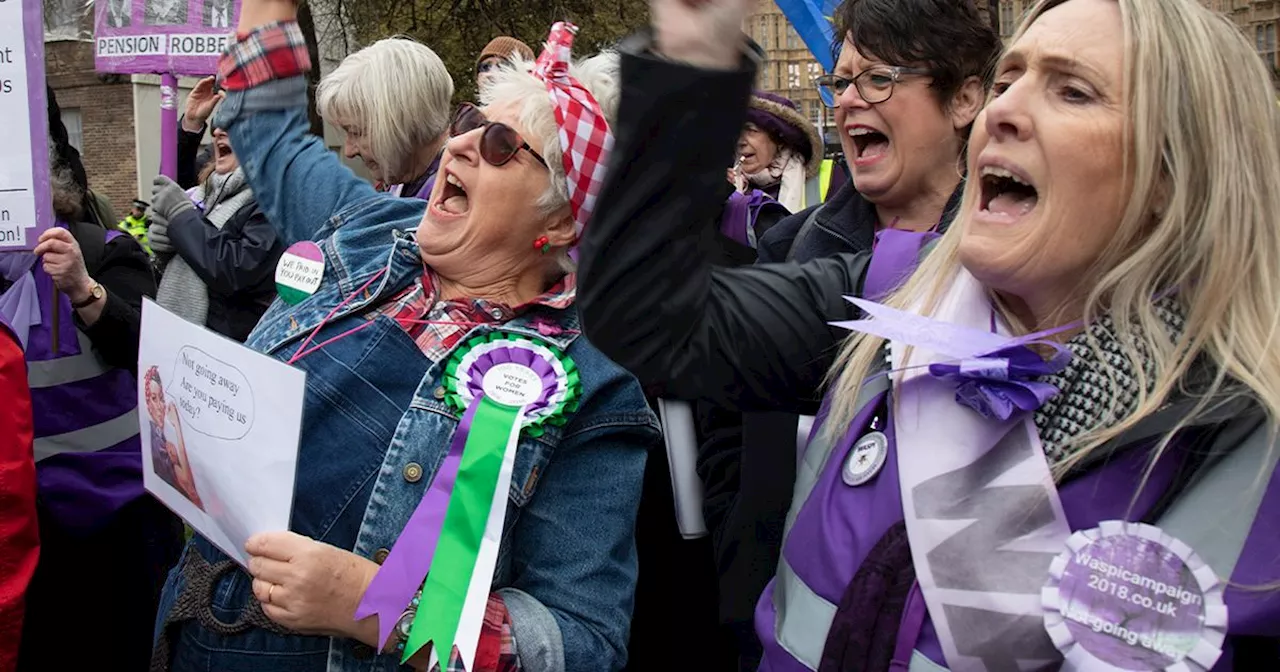 WASPI Campaigners Appeal to New Work and Pensions Committee for CompensationWASPI campaigners will present their case for compensation to the Work and Pensions Committee after the Labour Government rejected their calls.
WASPI Campaigners Appeal to New Work and Pensions Committee for CompensationWASPI campaigners will present their case for compensation to the Work and Pensions Committee after the Labour Government rejected their calls.
Read more »
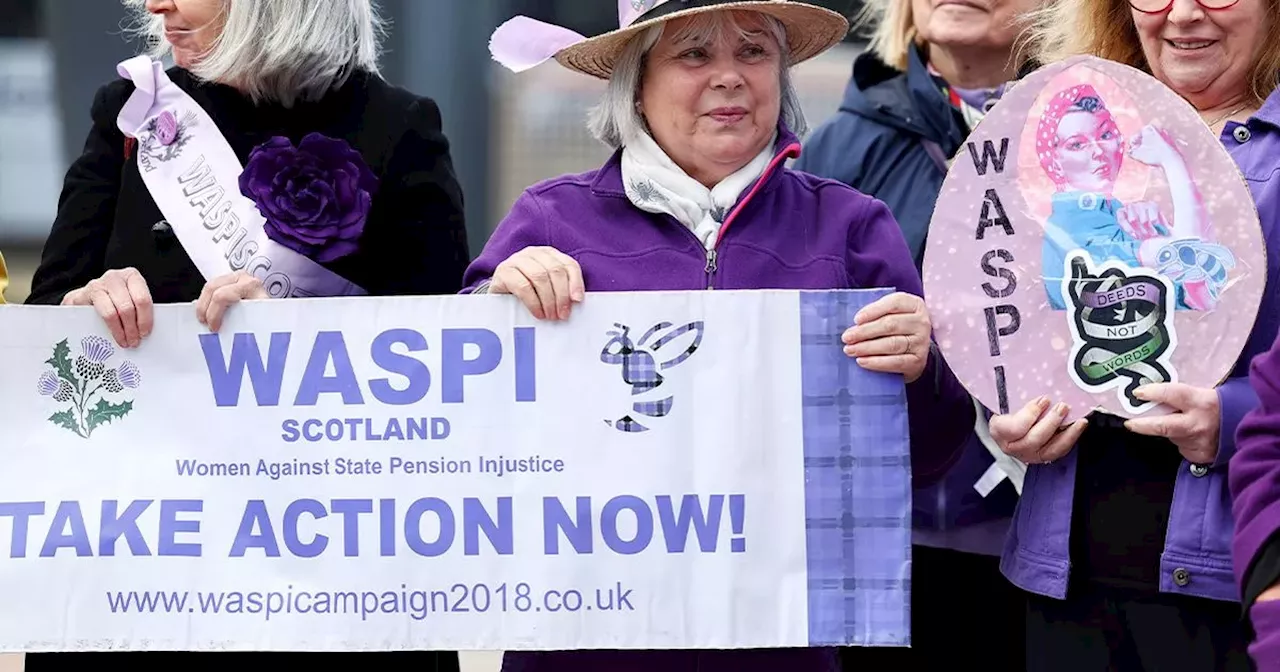 WASPI Campaigners Seek Fresh Assessment of State Pension Age ChangeDespite Labour's rejection of compensation, MPs continue to press for a reassessment of the state pension age increase affecting women born in the 1950s. An upcoming hearing with the Work and Pensions Committee offers a platform for WASPI campaigners to present their case.
WASPI Campaigners Seek Fresh Assessment of State Pension Age ChangeDespite Labour's rejection of compensation, MPs continue to press for a reassessment of the state pension age increase affecting women born in the 1950s. An upcoming hearing with the Work and Pensions Committee offers a platform for WASPI campaigners to present their case.
Read more »
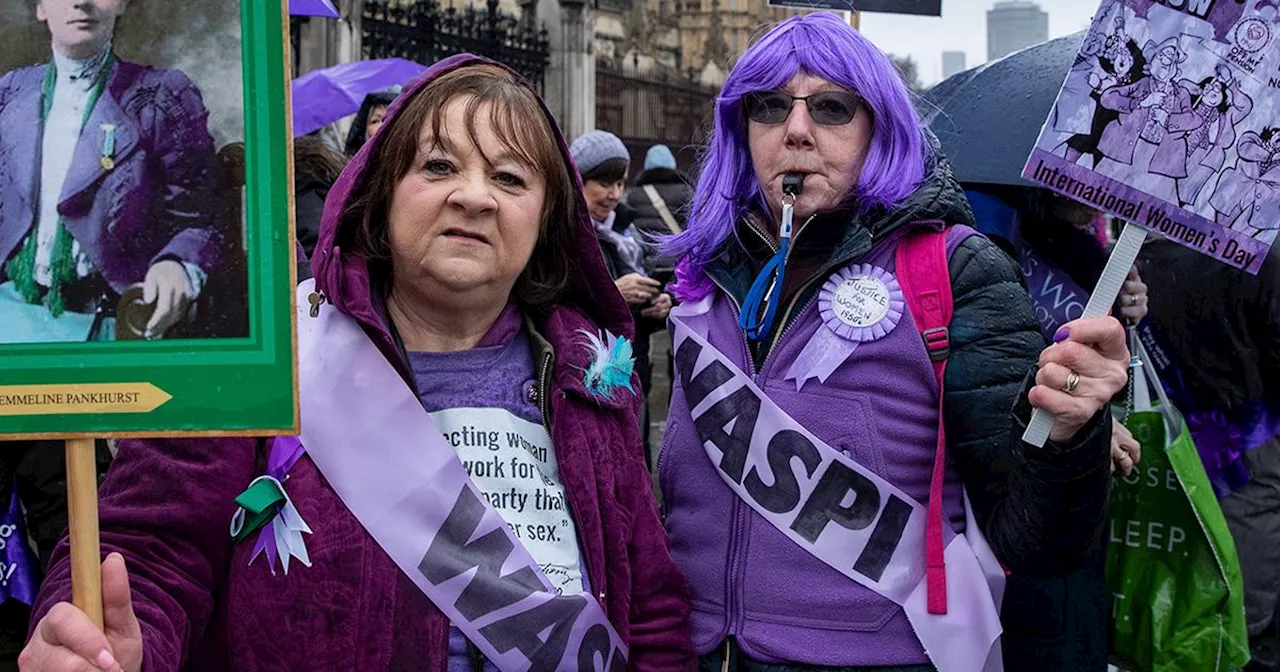 WASPI Campaigners Push for Pension Compensation Debate in ParliamentWomen Against State Pension Inequality (WASPI) campaigners are intensifying their efforts to secure compensation for women born in the 1950s, aiming for a fresh parliamentary debate on the issue. The campaign centers around the changes to the state pension age, raised from 60 to 65 and then to 66, and how these women were informed about the adjustments. While a previous investigation found 'maladministration' in the Department for Work and Pensions (DWP)'s communication, the Government has rejected compensation, citing taxpayer costs and claiming most women were aware of the changes. Despite this setback, WASPI enjoys significant MP support, with multiple parliamentarians pledging to keep raising the issue. A potential backbench business debate could allow all MPs to voice their opinions, though it wouldn't directly compel the Government to act. The campaign also highlights the involvement of key parliamentary committees, such as the Work and Pensions Committee, the Public Administration and Constitutional Affairs Committee (PACAC), and the Women and Equalities Committee, which could influence the situation.
WASPI Campaigners Push for Pension Compensation Debate in ParliamentWomen Against State Pension Inequality (WASPI) campaigners are intensifying their efforts to secure compensation for women born in the 1950s, aiming for a fresh parliamentary debate on the issue. The campaign centers around the changes to the state pension age, raised from 60 to 65 and then to 66, and how these women were informed about the adjustments. While a previous investigation found 'maladministration' in the Department for Work and Pensions (DWP)'s communication, the Government has rejected compensation, citing taxpayer costs and claiming most women were aware of the changes. Despite this setback, WASPI enjoys significant MP support, with multiple parliamentarians pledging to keep raising the issue. A potential backbench business debate could allow all MPs to voice their opinions, though it wouldn't directly compel the Government to act. The campaign also highlights the involvement of key parliamentary committees, such as the Work and Pensions Committee, the Public Administration and Constitutional Affairs Committee (PACAC), and the Women and Equalities Committee, which could influence the situation.
Read more »
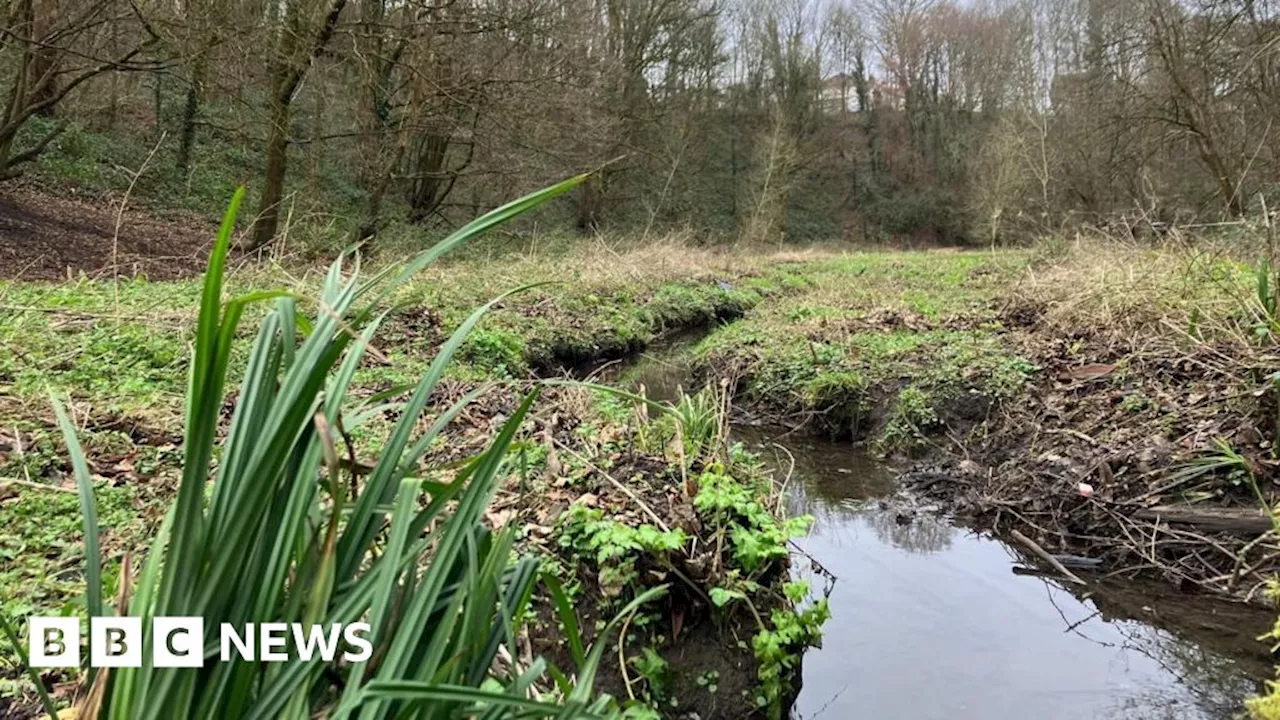 Bristol Brislington Brook: Public assured access to green 'haven of peace'Campaigners say new owners of a part of Brislington Brook want to continue giving public access.
Bristol Brislington Brook: Public assured access to green 'haven of peace'Campaigners say new owners of a part of Brislington Brook want to continue giving public access.
Read more »
